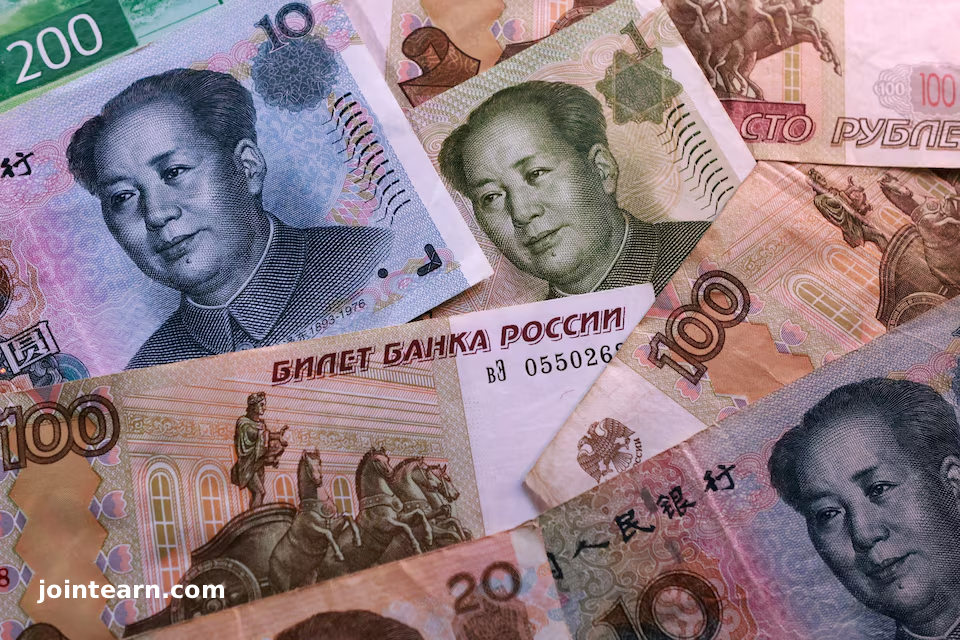
MOSCOW, October 31, 2025 – Russia is preparing to issue its debut yuan-denominated sovereign bonds on the domestic market, sources familiar with the matter told Reuters. The move aims to provide an investment option for the vast amounts of yuan liquidity accumulated by Russian banks and exporters from energy sales to China.
Russia’s Finance Ministry Plans Multiple Yuan Bond Issues
According to three financial market sources, the Russian Finance Ministry plans up to four yuan-denominated bond issuances, with a total value of up to 400 billion roubles ($5 billion USD). The bonds are expected to have maturities ranging from three to ten years, providing both short- and medium-term investment options for domestic institutions.
One source revealed, “The deal is planned for early December. They are aiming for the widest range of investors, from banks and asset management companies to brokers operating in the retail client market.”
Target Investors and Trading Mechanics
The Finance Ministry has reportedly held meetings with potential buyers, including banks and other institutional investors, to outline the possible parameters of the yuan-denominated bonds. The bonds will also allow transactions in Russian roubles at the prevailing exchange rate, offering flexibility for investors within Russia’s domestic financial system.
The timing of the issuance coincides with U.S.-sanctioned Russian oil firms, Rosneft and Lukoil, repatriating their yuan earnings ahead of sanctions taking effect on November 21, 2025.
Context: Russia-China Trade and Yuan Liquidity
Analysts from Cbonds estimate that the volume of yuan-denominated corporate bonds in circulation in Russia currently totals 166 billion roubles. According to Finance Minister Anton Siluanov, 90% of all trade between Russia and China is conducted in roubles and yuan, though he did not specify the exact share of yuan. Trade between the two countries reached a record $245 billion last year, highlighting the growing financial interdependence.
The bonds are set to be issued on the Moscow Stock Exchange (MOEX), which is currently under Western sanctions, restricting participation from the majority of foreign investors, including many from China and other Asian countries.
Russia-China Financial Cooperation and Market Access
Russia has been negotiating with China to create a financial “bridge”, allowing Chinese investors to access Russian assets without oversight from Western regulators. Despite strong political ties between the countries and the “no upper limits partnership policy” endorsed by President Vladimir Putin and Chinese President Xi Jinping, negotiations have yet to yield a concrete mechanism.
Expected Demand and Market Impact
Analysts expect strong domestic demand for the yuan bonds, particularly from Russian exporters holding yuan earnings in bank deposits. The issuance is anticipated to:
- Boost yuan interest rates inside Russia, currently at record lows.
- Mitigate some foreign currency risk for Russian banks managing large yuan balances.
- Help banks meet regulatory requirements amid swelling yuan liquidity from energy sales.
Renaissance Capital analysts highlighted that the placement of yuan-denominated sovereign bonds could become a strategic tool to strengthen Russia’s domestic financial markets while reducing exposure to U.S. dollar fluctuations.
Key Takeaways
- Russia plans to issue its first yuan-denominated sovereign bonds in early December 2025.
- Up to four issues are expected, with a combined value of 400 billion roubles ($5 billion) and maturities of 3–10 years.
- Bonds will be available to domestic investors, including banks, asset managers, and retail brokers, with transactions also allowed in roubles.
- The issuance is timed with yuan repatriation by Rosneft and Lukoil ahead of new U.S. sanctions.
- The move addresses yuan liquidity challenges in the Russian banking system and supports financial market stability.


Leave a Reply